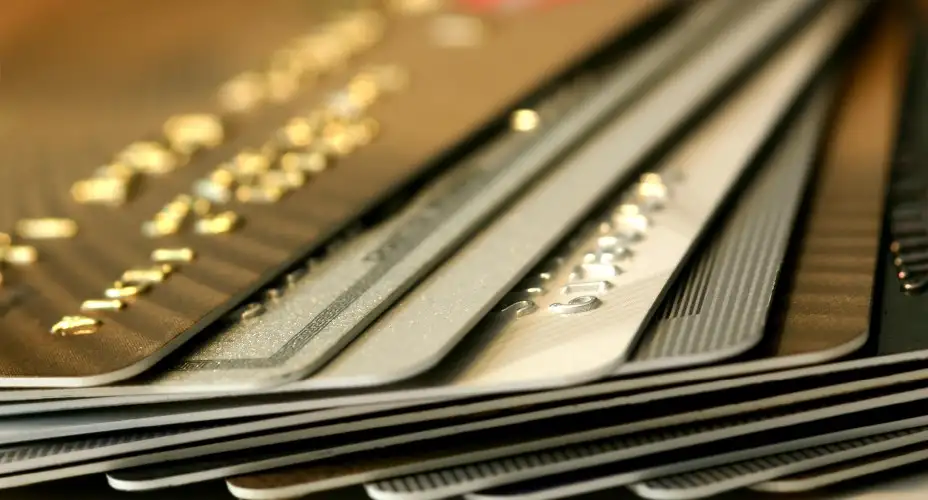
If you’re traveling anywhere this summer, you’ll almost surely use plastic—credit and debit cards—to pay for a lot of your trip. You’ll likely use a credit card to buy airline tickets, rail tickets, hotel or resort accommodations, a cruise, a tour package, and restaurant meals, and a debit card for whatever cash you need while you’re away from home. One of your important pre-departure preparations is to make sure your plastic is ready for your trip. Some are obvious “any idiot” suggestions that you need to review:
- Validity. Make sure that any cards you plan to use will remain valid until you return home.
- Adequate reserve: Check to verify that you have enough credit available on your credit card or cards for your trip, and have enough in the account linked to your debit card to cover your likely cash needs.
- Notify issuers. Although not crucial, it’s a good idea to notify the issuers of your cards where and when you’ll be traveling. An issuer may sometimes deny transactions made in places where you don’t normally use the card, as a protection against theft and misuse.
- Customer service numbers. If your card is lost or stolen, you can’t really refer to the back of the card for the number to call to report the theft. Record the appropriate numbers in your smartphone, tablet, or even a piece of paper.
Beyond these obvious precautions, consider two other potential adjustments that could impact your total travel cost. This column is focused on domestic travel; I’ll take a look at overseas plastic in a future column.
Related: The Hidden Travel Cost You Should Never Ignore
Debit Card Fee
Most banks assess a fee, typically $3 to $5, for each withdrawal at a foreign ATM, and they define “foreign” as any ATM other than one of their own. So if you plan to travel outside the region where your bank operates, consider opening a checking or saving account at a bank that does not assess a foreign ATM fee. USAA waives fees, as do many small banks and credit unions; online banks such as Ally Bank, Bank of Internet, Capital One 360, Charles Schwab, and Discover Bank either waive all fees or provide no-fee withdrawal at several nationwide ATM networks (along with online locators).
Related: Travel Snags and How to Avoid Them
Collision Coverage
If you plan to rent a car, you probably already know whether your card provides automatic no-extra-fee coverage for collision damage to a rented car. You probably also know that collision damage waivers the rental companies charge are outrageously expensive—they can easily double the cost of a rental. Although many credit cards do cover rental car damage, coverage on most of them is secondary, meaning that the card covers only those charges that you can’t first claim on your regular car insurance. If you’re happy with that secondary coverage, decline the rental company CDW and keep the cost of the rental low.
Related: Third-Party Rental-Car Insurance: It Actually Works!
But if you’re wary about having to claim on your regular insurance, you have options. A few credit cards provide primary insurance, or you can convert secondary AmEx coverage to your primary for $20 or $25 per rental period. Also, several third-party insurance agencies, such as Protect Your Bubble, offer primary protection for $7.99 a day—about a third of what the rental car companies charge; the big online travel agencies also offer low-cost collision coverage, typically for $10 a day. But the rental company CDW has one big advantage: It’s the only protection that allows you to walk away from the damage without paying anything. Credit card or third-party coverage requires that you pay up front for the damage and claim reimbursement later. If that worries you, hold your nose and buy CDW.
Before you leave, review the other “free” travel services your card provides, such as lost baggage reimbursement. They’re usually low-value benefits, but still worth knowing.
Ed Perkins Seniors on the Go is copyright (c) 2015 Tribune Media Services, Inc.
You Might Also Like:
We hand-pick everything we recommend and select items through testing and reviews. Some products are sent to us free of charge with no incentive to offer a favorable review. We offer our unbiased opinions and do not accept compensation to review products. All items are in stock and prices are accurate at the time of publication. If you buy something through our links, we may earn a commission.
Related
Top Fares From Columbus, OH
Today's Top Travel Deals
Brought to you by ShermansTravel
Shop and Save with Country Inns...
Patricia Magaña
 Hotel & Lodging Deals
Hotel & Lodging Deals
$229 -- Chicago: Discounted Rates and...
Francesca Miele
 Hotel & Lodging Deals
$229+
Hotel & Lodging Deals
$229+
$188 -- Honolulu: Save on Oceanview...
Abigail Lamay
 Hotel & Lodging Deals
$188+
Hotel & Lodging Deals
$188+



